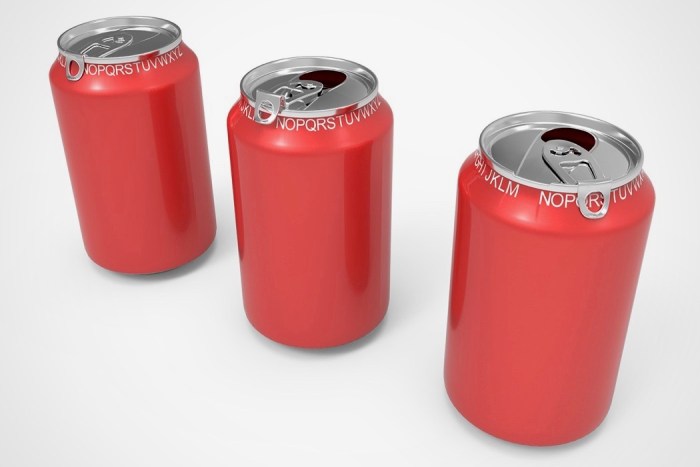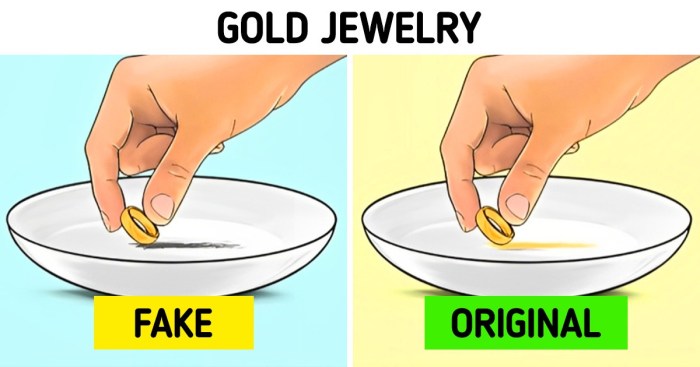How to get motivated to clean sets the stage for a deep dive into the art of making tidiness a joy, not a chore. We’ll explore the psychological underpinnings of motivation, practical strategies for breaking down daunting tasks, and the surprisingly powerful role of rewards and incentives in fostering a love for cleanliness. Get ready to transform your relationship with tidiness!
From understanding your own unique motivations to crafting a personalized cleaning schedule, this guide provides actionable steps and insightful strategies. We’ll uncover the secrets to turning cleaning from a dreaded chore into a fulfilling and rewarding experience. Let’s dive in!
Understanding Motivation for Cleaning
Cleaning, often viewed as a necessary chore, can be transformed into a positive experience. Understanding the psychological factors behind our motivation is key to overcoming procrastination and making cleaning a more enjoyable part of our routine. Motivation stems from a complex interplay of internal and external forces, and recognizing these factors allows us to tailor our approach to cleaning, fostering a sense of accomplishment and well-being.Psychological factors influence our motivation to clean in profound ways.
Our perception of cleanliness, our personal values, and our past experiences all play a role in how we approach this task. For instance, someone who grew up in a very clean home might have a higher standard of cleanliness than someone from a less tidy environment. This difference in expectation and personal standards directly impacts their motivation levels.
Identifying Personal Triggers
Understanding what triggers our motivation (or demotivation) is crucial for effective cleaning strategies. Recognizing patterns and associations is key to shifting our mindset towards cleaning. For example, if you associate cleaning with feelings of stress or pressure, it’s essential to reframe that association. This can be achieved through positive reinforcement, breaking down tasks into smaller steps, and creating a pleasant environment during the cleaning process.
Identifying and addressing these triggers can lead to a more positive experience with cleaning.
The Link Between Cleanliness and Well-being
A clean environment can significantly impact our overall well-being. Studies show a correlation between a tidy living space and reduced stress levels, improved focus, and increased feelings of control. A clean space allows for a clear mind and a sense of calm. This is because a cluttered environment can create a sense of overwhelm and anxiety, whereas a clean space provides a sense of order and peace.
Associating Cleaning with Positive Emotions, How to get motivated to clean
Cleaning doesn’t have to be viewed solely as a chore. Creating positive associations with cleaning, such as listening to upbeat music, rewarding yourself with a treat after a task, or even incorporating cleaning into a social activity, can make the experience more enjoyable. For example, if you enjoy listening to podcasts, dedicating a cleaning session to a particular podcast episode can make the task more engaging and less tedious.
Types of Cleaning Motivation
Motivation can be categorized into intrinsic and extrinsic types. Intrinsic motivation arises from within, driven by personal satisfaction and enjoyment. Extrinsic motivation, conversely, comes from external factors like rewards or praise. Both types can be beneficial, and often a combination of both is ideal for long-term motivation. This balanced approach creates a more sustainable cleaning routine.
Comparison of Cleaning Motivation Approaches
| Approach | Description | Pros | Cons |
|---|---|---|---|
| Intrinsic | Driven by personal satisfaction, enjoyment, and sense of accomplishment. The reward comes from the act itself. | Sustainable, long-term motivation, increased engagement, potential for creativity and personalization. | Can be challenging to maintain consistently, may require significant self-discipline. |
| Extrinsic | Driven by external rewards, such as praise, incentives, or tangible rewards. | Can be effective in short-term motivation, encourages consistency. | May not lead to long-term motivation, can create dependency on external factors, and the value of the task can be diminished if only the reward is considered. |
Breaking Down the Task

Conquering a large cleaning task can feel daunting. The sheer volume of work can be overwhelming, making it easy to procrastinate or give up altogether. However, breaking down the task into smaller, more manageable steps is key to achieving success and maintaining a positive cleaning experience. This approach fosters a sense of accomplishment with each completed step, building momentum and reducing the overall stress associated with cleaning.Breaking down a large cleaning task into smaller, bite-sized chunks is crucial for staying motivated and avoiding overwhelm.
This strategy transforms a seemingly impossible chore into a series of achievable steps, each offering a sense of progress. This approach also allows for a more targeted and efficient use of time and energy.
Methods for Breaking Down Large Tasks
Breaking down large cleaning tasks into smaller, manageable steps is a fundamental strategy for success. Visualize the entire task as a collection of smaller sub-tasks. For example, cleaning a whole house can be broken down into cleaning each room individually, and each room can be further divided into cleaning the floors, dusting surfaces, and organizing closets. This division of labor creates a clear roadmap to follow, making the cleaning process less daunting.
Step-by-Step Guide for Cleaning a Bedroom
A detailed step-by-step guide for cleaning a bedroom is presented below:
- Declutter and Organize: Remove items that are out of place or no longer needed. This includes putting clothes away, sorting through papers, and discarding unnecessary items. Place items in their designated spots, promoting a sense of order and tidiness.
- Dust and Wipe Surfaces: Begin by dusting all surfaces, including shelves, tables, and windowsills. Use a damp cloth to wipe down surfaces to remove dirt and grime. Pay particular attention to areas prone to collecting dust.
- Clean the Floor: Vacuum or sweep the floor to remove dust and debris. Follow up with a mop to clean up any remaining dirt or stains. Ensure you pay attention to corners and edges, which often collect more dirt.
- Make the Bed: Make the bed using fresh linens. This is a quick and satisfying step that immediately improves the appearance of the room.
- Clean the Bathroom (if attached): If the bedroom includes an attached bathroom, follow the cleaning steps for the bathroom as Artikeld in the subsequent cleaning guide.
- Empty Trash and Recycling: Empty the trash and recycling bins to maintain cleanliness and hygiene.
- Air Out the Room: Open windows to allow fresh air to circulate and improve the overall atmosphere of the room.
Setting Realistic and Achievable Goals
Setting realistic and achievable cleaning goals is essential to prevent burnout and maintain consistency. Instead of aiming for a spotless house every day, focus on completing one or two specific cleaning tasks daily. This approach fosters a sense of accomplishment with each completed task, building momentum and making cleaning less overwhelming. For example, a realistic goal could be to clean one room each week.
Actionable Steps to Start a Cleaning Routine
Starting a cleaning routine requires a structured approach. Here’s a list of actionable steps to begin:
- Identify your cleaning needs: Evaluate which areas require immediate attention. Determine what tasks are important to accomplish daily, weekly, or monthly.
- Create a cleaning schedule: Schedule specific times for cleaning tasks. This can be daily, weekly, or monthly, depending on the frequency required for each task.
- Break down tasks into smaller steps: Divide large cleaning tasks into smaller, manageable sub-tasks to avoid feeling overwhelmed.
- Prioritize tasks: Decide which tasks are most important to address first.
- Set realistic goals: Set achievable goals that are consistent with your lifestyle and available time.
- Start with small changes: Begin with small, manageable cleaning tasks and gradually increase the scope of your routine over time.
Creating a Cleaning Schedule That Works with Your Lifestyle
Creating a cleaning schedule that aligns with your lifestyle is essential for long-term success. Consider your daily schedule, commitments, and available time. Schedule cleaning tasks during periods when you have the most energy or when there are fewer distractions. A flexible approach, allowing for adjustments as needed, is crucial for maintaining a consistent cleaning routine.
Using Visual Aids to Track Progress
Visual aids like checklists are invaluable tools for tracking progress and staying organized. Create a checklist of cleaning tasks, marking off each completed item. This visual representation of progress can boost motivation and provide a clear overview of your cleaning accomplishments. A visual checklist or a calendar with marked tasks can provide a clear record of completed cleaning jobs.
Utilizing Rewards and Incentives: How To Get Motivated To Clean
Motivation for cleaning, like motivation for anything, often thrives on positive reinforcement. Understanding what motivatesyou* personally is key. Some people are intrinsically motivated, finding the act of a clean space fulfilling in and of itself. Others need a little nudge. Rewards and incentives can be powerful tools in cultivating positive cleaning habits, turning a chore into a more enjoyable experience.Rewards act as positive reinforcement, strengthening the association between cleaning and a positive outcome.
This can be particularly helpful for individuals who find cleaning less intrinsically rewarding. By linking cleaning tasks to something enjoyable, you’re essentially creating a positive feedback loop, making cleaning more likely to occur in the future.
Feeling unmotivated to tackle that cleaning spree? Sometimes, a visual reminder can help! Think about how sad it is when your Christmas tree starts dropping needles, maybe due to improper care or environment issues. For example, reasons your Christmas tree is dropping needles could be a similar feeling of discouragement. But just like you can find the cause and fix the tree’s problem, you can also find ways to motivate yourself to tackle that cleaning project.
A little bit at a time can make all the difference!
Different Types of Rewards
A wide range of rewards can motivate cleaning. Tangible rewards, like a new book or a small piece of jewelry, are effective for some. Experiential rewards, such as a movie night with friends or a relaxing spa day, can be equally motivating. Even small, everyday rewards, like a favorite snack or a calming cup of tea, can contribute to a positive association with cleaning.
Remember, the best reward is one that genuinely appeals to the individual.
Effectiveness of Positive Reinforcement
Positive reinforcement, a cornerstone of behavioral psychology, works by increasing the likelihood of a desired behavior. When a specific action (like cleaning) is followed by a positive consequence (like a reward), the brain learns to associate the action with a positive feeling. This strengthened association makes the behavior more likely to occur again. This principle can be applied to daily cleaning routines as well as larger tasks like a deep clean.
Linking Rewards to Specific Cleaning Tasks
Linking rewards to specific cleaning tasks helps focus effort and makes the reward feel more earned. Instead of a blanket reward for ‘cleaning the whole house,’ offer a reward for completing a specific task, like ‘cleaning the bathroom sink and countertop.’ This targeted approach makes the reward feel more meaningful and helps build consistency. A reward chart, or a simple to-do list with a reward at the end, can be very effective.
Reward Systems for Different Cleaning Situations
| Situation | Reward | Description |
|---|---|---|
| Weekly deep clean | A relaxing evening out | After completing a thorough weekly deep clean, treat yourself to a movie night with friends, a new book, or an enjoyable dinner. |
| Daily quick tidy | A favorite snack | For completing a quick daily tidy-up, reward yourself with a healthy snack or a cup of tea. |
| Cleaning a specific area | A small purchase | Rewarding yourself with a small, desired item after completing a specific cleaning task, like organizing a drawer or cleaning the kitchen counters. |
Potential Pitfalls of Excessive Rewards
While rewards can be helpful, using them excessively can sometimes diminish their effectiveness. If rewards become predictable and expected, their motivational power can wane. The focus then shifts from the intrinsic satisfaction of a clean space to the expectation of a reward. Finding a balance between using rewards and fostering intrinsic motivation is key to long-term success.
Feeling unmotivated to tackle that cleaning project? Sometimes, a change of scenery can help. Think about how invigorating it is to start a new garden, especially in winter when it’s the perfect time to get your hands dirty and plant bitter greens, like kale or mustard greens. Winter is the best time to grow bitter greens.
Focusing on a fresh start, like planting new herbs, can actually help motivate you to get that cleaning done. Plus, you’ll have fresh, healthy greens for your next meal!
Start small and adjust your approach based on your personal response.
Creating a Clean and Organized Environment
A clean and organized environment isn’t just about aesthetics; it’s a powerful motivator for maintaining cleanliness. A tidy space fosters a sense of calm and control, which can significantly impact your motivation to keep things clean. Imagine entering a room that’s spotless; it immediately evokes a feeling of accomplishment and encourages you to maintain that order. Conversely, a cluttered space can create feelings of overwhelm and discouragement, making cleaning seem like an insurmountable task.
Feeling uninspired to tackle that cleaning spree? Sometimes, a little perspective can help. Imagine the time it takes to grow a pineapple; how long to grow pineapple is surprisingly lengthy, highlighting the value of focused effort. That same dedication and persistence, applied to a tidy home, will make a satisfying difference. So, grab a playlist, put on some tunes, and conquer those chores!
This section delves into the connection between a clean environment and cleaning motivation, offering practical strategies to declutter and organize your living space.A clean and organized space can dramatically impact your motivation to keep it that way. When you see a clean space, it’s easier to imagine it staying that way, and you are more likely to maintain the order you have created.
This creates a positive feedback loop where maintaining cleanliness becomes easier and more appealing.
The Influence of Clutter on Motivation
Clutter is a significant obstacle to maintaining motivation for cleaning. A messy environment can lead to feelings of overwhelm and frustration. The sheer amount of items vying for attention can be mentally taxing, making the prospect of cleaning seem daunting. The longer clutter accumulates, the more ingrained it becomes in your daily life, reinforcing a sense of disorganization.
This sense of disarray often translates into a lack of motivation to tackle the cleaning task.
Decluttering and Organizing Strategies
Decluttering and organizing your living space are crucial for boosting cleaning motivation. These processes aren’t about perfection; they’re about creating a space that works for you and promotes a sense of order. A clean, organized environment is easier to maintain, leading to less stress and more motivation for ongoing upkeep. This section explores practical strategies for decluttering and organizing, making your space more conducive to cleanliness.
- The KonMari Method: This method focuses on keeping only items that “spark joy.” This approach encourages you to assess the emotional connection you have with each item. This helps to minimize possessions and create a more intentional living space. It’s a highly personal approach, focusing on the emotional connection to objects, making it possible to part with items you no longer need or enjoy.
- The Minimalist Approach: This approach focuses on reducing possessions to essentials. The core principle is to keep only items that serve a clear purpose and bring value to your life. By reducing the number of items in your space, you reduce the amount of work needed to maintain order. This approach emphasizes reducing clutter by eliminating unnecessary items and focusing on the most essential possessions.
Examples of Accomplishment
The feeling of accomplishment after decluttering and organizing a space is profound. Clearing a cluttered desk, for instance, can provide a sense of freedom and focus, making it easier to tackle other tasks. Seeing an organized pantry, or a neat and tidy bedroom, creates a sense of pride and control, reinforcing positive habits and motivating you to maintain order.
The feeling of accomplishment after decluttering is often described as a feeling of liberation, freeing mental space and encouraging further positive habits.
Incorporating Organization into the Cleaning Process
Organization is a crucial component of maintaining a clean space. Instead of just cleaning, integrate organization strategies into your cleaning routine. This could involve designating specific storage areas for items, using containers to categorize items, or creating a system for putting things away immediately after use. These practices create a virtuous cycle of cleaning and organization, fostering a more motivated and efficient approach to household maintenance.
Creating systems for storing items immediately after use makes the cleaning process easier and more efficient, boosting motivation and reducing the sense of overwhelming clutter.
Decluttering Method Comparison
| Method | Description | Pros | Cons |
|---|---|---|---|
| KonMari | Focuses on discarding items that no longer spark joy. | Promotes emotional connection to possessions, reduces clutter effectively. | Can be time-consuming, may not suit everyone’s lifestyle. |
| Minimalism | Focuses on reducing possessions to essentials. | Reduces clutter, promotes focus on essential items, simplifies maintenance. | Requires discipline, might be challenging for sentimental attachment to items. |
Overcoming Barriers to Cleaning Motivation

Cleaning, while essential, can often feel like a daunting task. This feeling is often amplified by obstacles that hinder our motivation. Understanding these barriers and developing strategies to overcome them is key to making cleaning a less stressful and more manageable part of our lives.The journey to a cleaner home is paved with challenges, ranging from procrastination to competing priorities.
Overcoming these obstacles requires a proactive approach, combining effective strategies with self-compassion. By understanding the root causes of our resistance and implementing practical solutions, we can cultivate a more positive relationship with cleaning and achieve a cleaner, more organized environment.
Common Obstacles to Cleaning Motivation
Many factors contribute to a lack of motivation to clean. Procrastination, a common human tendency, is a major deterrent. Time constraints, a feeling of being overwhelmed by the task, and even a simple lack of desire can all contribute to putting cleaning off. Recognizing these hurdles is the first step in overcoming them.
Strategies to Overcome Procrastination
Procrastination often stems from a fear of the task or a feeling of being overwhelmed. Breaking down large cleaning tasks into smaller, more manageable steps is crucial. For example, instead of thinking “clean the entire house,” consider “clean the kitchen counters” or “put away the laundry.” These smaller steps are less intimidating and provide a sense of accomplishment as each is completed.
Managing Competing Priorities
Life often throws us curveballs. Work deadlines, social commitments, and family responsibilities can easily displace cleaning from our schedules. A crucial step is to schedule cleaning time in your calendar, just like any other important appointment. Treat cleaning as a non-negotiable appointment to ensure it gets done.
Self-Compassion and Understanding
Motivation fluctuations are normal. Don’t beat yourself up if you miss a day or a week of cleaning. Self-compassion and understanding are essential. Recognize that you are human and that motivation ebbs and flows. Acknowledge your feelings without judgment and gently redirect your focus back to cleaning when you’re ready.
Managing Stress and Anxiety Related to Cleaning
Cleaning can sometimes be a source of stress or anxiety. This could stem from past negative experiences or a perception of cleaning as an overwhelming task. Finding ways to manage stress and anxiety related to cleaning is essential for long-term success. Deep breathing exercises, listening to calming music, or creating a positive and motivating environment can help alleviate these feelings.
If stress persists, seeking support from a therapist or counselor is a valuable option.
Maintaining Cleaning Habits
Turning initial cleaning motivation into a sustained habit requires a shift in mindset. It’s not just about the act of cleaning, but about integrating it into your lifestyle. This involves building routines, understanding consistency, and being prepared for inevitable setbacks. Successful maintenance hinges on understanding these crucial elements.
Transitioning from Initial Motivation
Sustaining cleaning habits requires a shift from the initial “burst” of motivation to a consistent, ingrained practice. This often involves transforming one-off cleaning efforts into scheduled tasks, similar to how a routine morning exercise becomes a natural part of your day. It’s about understanding that cleaning is a continuous process, not a one-time event.
Building and Maintaining Cleaning Routines
Developing a cleaning routine is key to sustaining motivation. A well-structured routine makes cleaning less daunting and more manageable. It’s crucial to create a schedule that fits your lifestyle and allows for realistic time commitments. This involves understanding your daily and weekly activities and incorporating cleaning tasks seamlessly.
- Establish a Cleaning Schedule: This involves allocating specific time slots for different cleaning tasks, like dusting on Tuesdays, vacuuming on Thursdays, and deep cleaning on weekends. Creating a visual schedule, such as a whiteboard calendar or a digital planner, can further enhance your commitment to the routine.
- Prioritize Tasks: Identify tasks that need the most attention. Prioritizing can make your cleaning schedule more manageable. This could include tasks like dishes, bathrooms, or specific areas in your home that tend to get messy faster.
- Break Down Large Tasks: Large cleaning tasks can be intimidating. Breaking them down into smaller, more manageable steps can reduce the feeling of overwhelm. For example, instead of tackling the entire kitchen, focus on cleaning one appliance or one countertop at a time.
- Set Realistic Expectations: Avoid setting unrealistic cleaning goals. A realistic schedule will lead to better compliance and prevent frustration.
Importance of Consistency and Regularity
Consistency in cleaning is essential for maintaining a clean and healthy living environment. Regular cleaning prevents the accumulation of dirt and grime, leading to a more comfortable and hygienic home. Regularity also builds a positive feedback loop; seeing the benefits of a clean home reinforces the habit.
Adapting Cleaning Routines
Life circumstances change, and cleaning routines should adapt to those changes. Flexibility is crucial to maintain motivation. If your schedule changes, adjust your routine accordingly. For example, if you start working from home, you might need to incorporate additional cleaning time into your schedule.
- Adjusting to New Life Stages: A family with young children might need more frequent cleaning routines. Similarly, single individuals might need less frequent but thorough deep cleaning.
- Flexibility in Schedules: Be prepared to adjust your cleaning schedule as needed, allowing for flexibility and avoiding feelings of being overwhelmed.
- Re-evaluation of Routines: Periodically review your cleaning routine to ensure it still aligns with your needs and lifestyle.
Maintaining Motivation During Setbacks
Setbacks are inevitable. When motivation wanes, don’t give up. Acknowledge the setback, identify the reason for the lapse, and adjust your approach. Don’t beat yourself up over a missed cleaning day. Simply resume your routine the next day.
- Re-evaluate and Re-adjust: If you experience a setback, don’t be discouraged. Take some time to analyze why the routine was disrupted. Then, make the necessary adjustments to your schedule and approach to bring the routine back on track.
- Seek Support: Enlist support from family members or roommates. Having someone to work alongside can motivate and inspire you.
- Celebrate Small Wins: Recognize and appreciate the progress you make, no matter how small. This positive reinforcement can help maintain motivation.
Illustrative Examples
Many individuals have successfully integrated cleaning habits into their lifestyles. One example is a busy professional who uses a color-coded cleaning schedule to ensure that tasks are completed consistently. Another example is a family that utilizes a shared cleaning checklist to divide tasks and maintain a clean home environment. These individuals demonstrate that sustained cleaning habits are achievable with planning and dedication.
Closing Summary
In conclusion, mastering the art of motivated cleaning isn’t about magically eradicating all the dirt and grime, but rather about cultivating a positive mindset and creating a supportive environment. By understanding your motivations, breaking down tasks, utilizing rewards, and creating a clean and organized space, you can transform cleaning into a manageable and even enjoyable experience. So, embrace the journey to a cleaner, more organized, and ultimately happier you!






